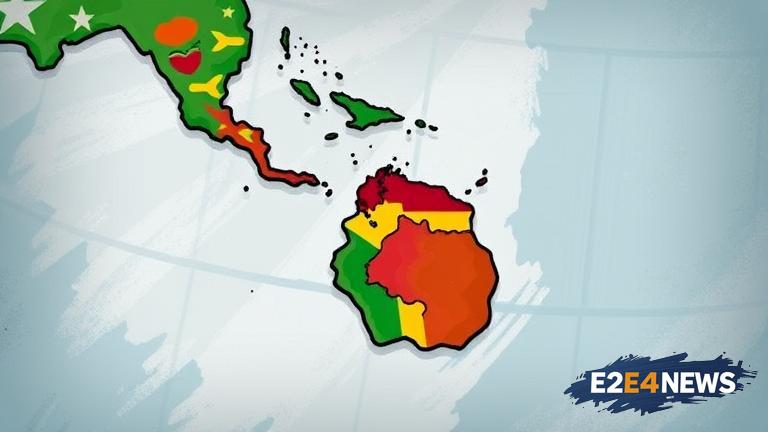The Caribbean Community (CARICOM) has been a cornerstone of regional integration and cooperation in the Caribbean for decades. However, the organization is currently facing significant challenges as member states struggle with economic pressures. The COVID-19 pandemic has had a devastating impact on the region, with many countries experiencing significant declines in tourism and other key industries. As a result, CARICOM member states are being forced to make difficult decisions about how to allocate their limited resources. Some countries, such as Trinidad and Tobago, have been forced to implement austerity measures, including cuts to public spending and increases in taxes. These measures have been unpopular with many citizens, who are already struggling to make ends meet. Despite these challenges, CARICOM remains committed to regional integration and cooperation. The organization has been working to implement a number of initiatives aimed at promoting economic growth and development in the region. These initiatives include the development of a single market and economy, as well as efforts to improve regional transportation and communication networks. However, progress on these initiatives has been slow, and many observers are concerned that the organization is not doing enough to address the pressing economic challenges facing the region. One of the main challenges facing CARICOM is the issue of free movement of people. While the organization has made significant progress in recent years in implementing the CARICOM Single Market and Economy (CSME), many citizens are still facing significant barriers when trying to move between countries. This has led to frustration and disappointment among many citizens, who feel that the organization is not doing enough to promote regional integration. Another challenge facing CARICOM is the issue of trade. While the organization has implemented a number of trade agreements aimed at promoting regional trade, many countries are still facing significant barriers when trying to export goods to other countries in the region. This has led to a significant decline in regional trade, and many observers are concerned that the organization is not doing enough to promote economic growth and development. Despite these challenges, CARICOM remains an important institution in the region, and many observers believe that it has a critical role to play in promoting regional integration and cooperation. The organization has been working to strengthen its relationships with other regional organizations, such as the Organization of Eastern Caribbean States (OECS) and the Association of Caribbean States (ACS). These relationships are seen as critical to promoting regional integration and cooperation, and many observers believe that they will play an increasingly important role in the years to come. In addition to its work on regional integration and cooperation, CARICOM has also been playing an increasingly important role in promoting regional security. The organization has been working to strengthen its relationships with regional security organizations, such as the Caribbean Community Implementation Agency for Crime and Security (IMPACS). These relationships are seen as critical to promoting regional security, and many observers believe that they will play an increasingly important role in the years to come. Overall, CARICOM is facing significant challenges as it works to promote regional integration and cooperation in the Caribbean. While the organization has made significant progress in recent years, many observers are concerned that it is not doing enough to address the pressing economic challenges facing the region. Despite these challenges, CARICOM remains an important institution in the region, and many observers believe that it has a critical role to play in promoting regional integration and cooperation. The organization’s commitment to regional integration and cooperation is unwavering, and many observers believe that it will continue to play a critical role in promoting economic growth and development in the region. As the region continues to face significant economic challenges, CARICOM’s role in promoting regional integration and cooperation will be more important than ever. The organization’s ability to adapt to changing circumstances and to find new ways to promote regional integration and cooperation will be critical to its success in the years to come. In conclusion, CARICOM is facing significant challenges as it works to promote regional integration and cooperation in the Caribbean. While the organization has made significant progress in recent years, many observers are concerned that it is not doing enough to address the pressing economic challenges facing the region. Despite these challenges, CARICOM remains an important institution in the region, and many observers believe that it has a critical role to play in promoting regional integration and cooperation.
